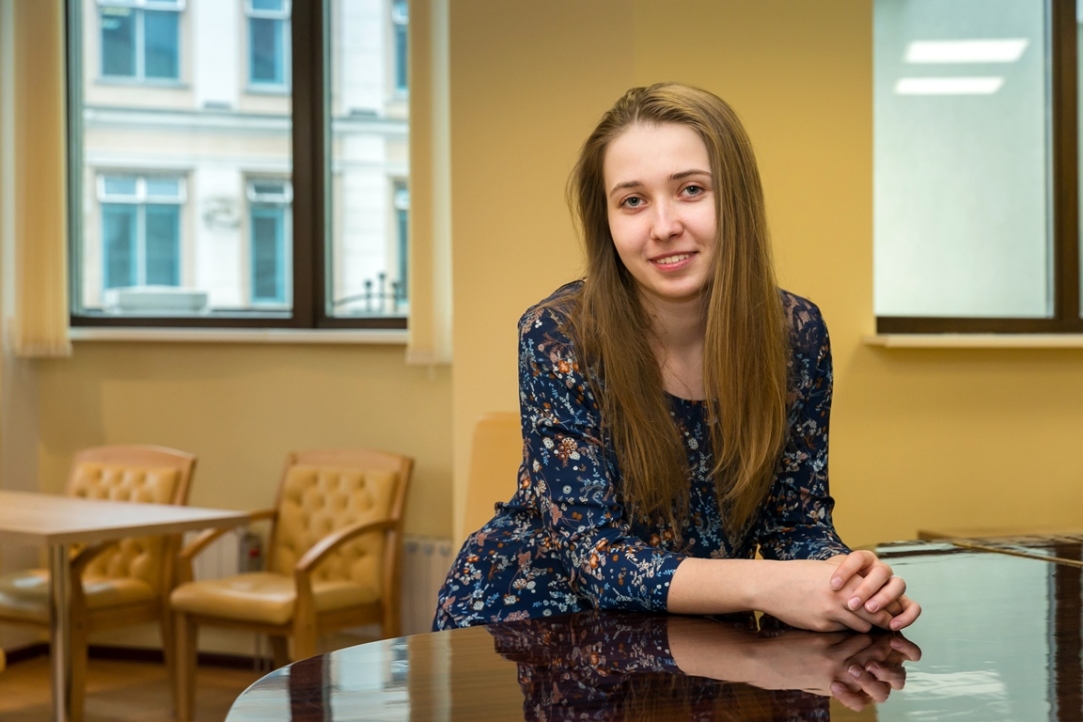François Guillemin – Seeking Adventure while Engaging in Serious Research
In deciding to join HSE as a post-doc fellow in the Center for Institutional Studies), François Guillemin sought to combine a sense of adventure with a post-doctoral experience that would allow him to continue his research in the field of banking regulation. HSE ended up on the top of his list, and he accepted an offer to start this September.

'You Have to Work Seven Days a Week. But I’ve Never Enjoyed Studying as Much as I Do This Year'
A year ago Yulia Zhestkova, a graduate of the HSE-NES Joint Programme got into the PhD programme in economics at the University of Chicago immediately after completing her bachelor’s. Below, Yulia tells the HSE News Service how the programme is structured, what the instructors – among whom are Nobel Prize Laureates – are like, and what you have to confess to yourself before going into a PhD programme.

Doing Business No Matter What
Having a career as entrepreneur is possible even in adverse circumstances, such as going against one’s family, lacking connections and living in a small provincial community; all of these can stimulate rather than hinder one's entrepreneurial drive, found HSE researchers after studying the life trajectories of young Russian business owners. The study findings are presented in the paper 'Biography as a Tree of Choices: Discovering the Life Trajectories of Young Entrepreneurs in Russia'.
-%D0%B7%D0%B0%D0%B2%D0%BE%D0%B4%20%D0%B8%D0%BD%D0%BD%D0%BE%D0%B2%D0%B0%D1%86%D0%B8%D0%B8.jpg)
Russia’s Innovation Powerhouses
HSE released its fifth Russian Regional Innovation Ranking, based on the 2015 findings, at a press conference hosted by TASS. Almost half Russia’s regions are relatively stable in terms of innovative development: their positions in the ranking have not changed significantly.

'Economics Is a Field Where Mathematics and the Real World Unite'
This year, HSE student Anna Denisenko graduates from her undergraduate economics programme, after which she’ll continue her education in a PhD programme at New York University, where she has already been accepted. The HSE News Service met with Anna to talk about her time at HSE, as well as what she had to do to get into the programme at NYU and what her expectations are of the university.
-%D0%B2%D0%BE%D0%BB%D0%BE%D0%BD%D1%82%D0%B5%D1%80%D1%8B%20%D1%81%20%D0%BC%D0%B5%D1%88%D0%BA%D0%BE%D0%BC.jpg)
Who Finances Charities
The belief that the non-profit sector is mainly supported by private donations is nothing but a myth. According to Natalia Ivanova's study Foreign Experience of Government's Impact on Philanthropy and Its Applicability in Russia, government support accounts for a substantial part of charity budgets.
-%D0%B4%D0%B5%D0%BD%D1%8C%D0%B3%D0%B8-%D0%BA%D0%B0%D0%BB%D1%8C%D0%BA%D1%83%D0%BB%D1%8F%D1%82%D0%BE%D1%80.jpg)
Piggy Bank in Crisis, or How Russians Save
More than half (51%) of Russians did not make savings before the current economic crisis and are not making any today. As of the end of 2016, 70% of Russians did not have any outstanding loans or debts. Researchers of the HSE Institute for Social Policy (ISP) examined Russians' borrowing and saving behaviour in the ‘Monitoring of Russian Population in 2016: Revenues, Expenditures and Social Well-being’.

Employers Increasingly Find Employees Online
The internet has changed how people approach job hunting and recruitment. Employment websites and social networks are now competing with personal connections as the key channel for offering and finding jobs and have replaced most other channels, according to Sergey Roshchin, Sergei Solntsev and student at the HSE ICEF Dmitry Vasilyev's paper 'The Evolution of Job Hunting and Recruitment in the Internet Age'.

Why Economic Forecasters Fail
The human factor, a reluctance to scare investors and the absence of tangible rewards for predicting recessions are some of the reasons why professional forecasters sometimes fail to signal economic downturns. In their study, Sergey Smirnov and Daria Avdeeva found evidence indicating that professional forecasters tend to hold on to optimistic scenarios for too long.

Trust in Banks Low, Yet Private Deposits on the Rise
In 2015, Russians’ trust in banks dropped sharply as the country’s economy faced a crisis, yet at the same time, the amount of individual bank deposits paradoxically increased, according to findings from a survey conducted by LSES as part of the "Monitoring Financial Behaviour and Consumer Confidence in Financial Institutions" project (2009-2015).

